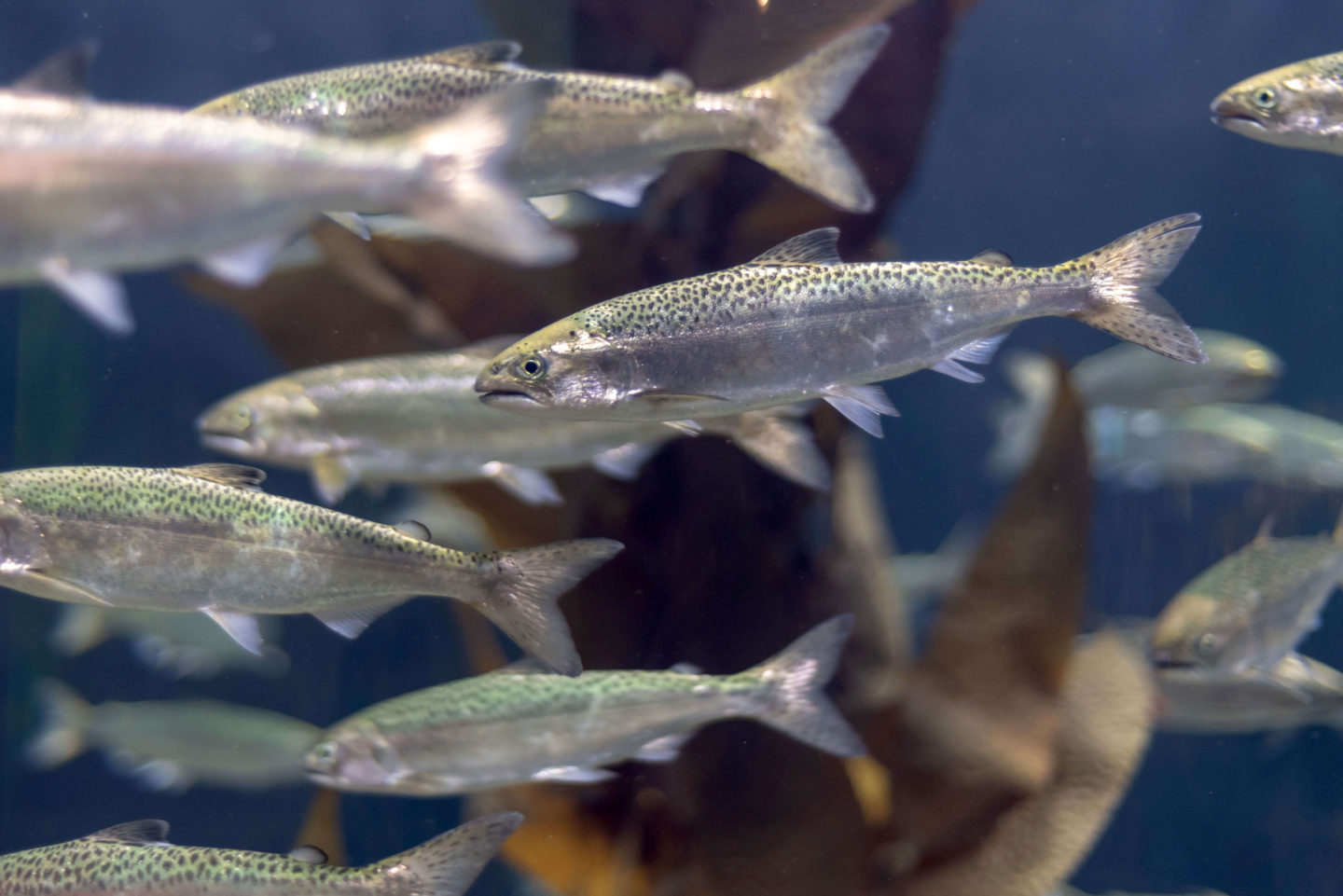March Madness is upon us, and perhaps you are checking your bracket feverishly, with an eye toward this Saturday’s Final Four either making or breaking your odds of winning. Or maybe you picked the Kentucky Wildcats to win the whole thing and your bracket broke on the first day of the tournament. Not that I um, did that or anything.
While a friendly wager with your friends on college hoops is a popular pastime here in the US, there are some who would like to take a much bigger gamble on things that we hold dear – our oceans. Right now, the federal agency tasked with managing our nation’s marine fisheries – National Oceanic and Atmospheric Administration (NOAA) – is teaming up with a big aquaculture trade group, industrial fish farming companies, big agri-businesses like Cargill, and even some environmental “bluewashing” groups who are trying to convince us that offshore fish farming is “sustainable.” This team is making a full-court press for high-intensity and heavily-polluting fish farms all around the US.
So what’s wrong with this kind of aquaculture? Offshore finfish farming (OFF) is the mass cultivation of finfish in marine waters in underwater or floating net pens, pods and cages. A full range of toxic chemicals, including antibiotics, pesticides, and antifoulants (the latter for the cages) can be dumped and then dispersed into the marine environment. The spread of disease, the environmental impacts of growing thousands of pounds of fish crammed in cages, and, of course, the negative economic impacts as fishermen and coastal communities who rely on healthy ecosystems would lose the most from the growth of this destructive industry. Finally, coastal tourism takes a hit when the contaminated runoff of uneaten fish feed and massive amounts of fish waste leads to harmful algal blooms.
Proponents hope that the rest of us can’t keep our eye on the ball. They try to confuse us by lauding the environmentally-benign and generally positive impacts of small-scale shellfish farming, and hope we won’t notice the screen, because their real goal was to send their point guard to hit nothing but net – that is, net pens that hold densely stocked finfish. It is akin to holding up a small-scale organic farmer as an example of how we farm in the US, when actually, we rely heavily on large-scale factory farming. Yet, NOAA continues to be a cheerleader for this unnecessary and largely unwanted industry. The agency goes so far as to pump taxpayer dollars into trying to create fans for life by teaching K-12 children that all forms of farm raised seafood – regardless of method and scale – are great, and that they should tell their parents as much. Don’t believe the hype!
Instead of supporting this dirty practice that even Canada and Denmark, formerly considered leaders in the industry, are now looking to sunset, NOAA should stop betting good money on a bad idea of factory finfish farming in the ocean. For now, it’s best to keep NOAA focused on what it’s meant to be doing – conserving and managing our wild fisheries. We need to ensure that NOAA doesn’t get to handle the ball on aquaculture. One way to help is by urging the Biden Administration to revoke a Trump-era Executive Order (EO 13921) that fast tracks permitting for ocean finfish facilities and contradicts a court ruling that said NOAA does not have authority over offshore finfish aquaculture under existing federal fisheries law.*
Sign our Petition to the Biden Administration, asking him to revoke EO13921. Click Here to urge your member of Congress to support legislation like the bipartisan Keep Finfish Free Act.
James Mitchell, Legislative Director, Don’t Cage our Oceans
*This was specifically for the Gulf of Mexico, as that is where the lawsuit took place. However, the decision interprets federal law, so it should logically extend to elsewhere.

